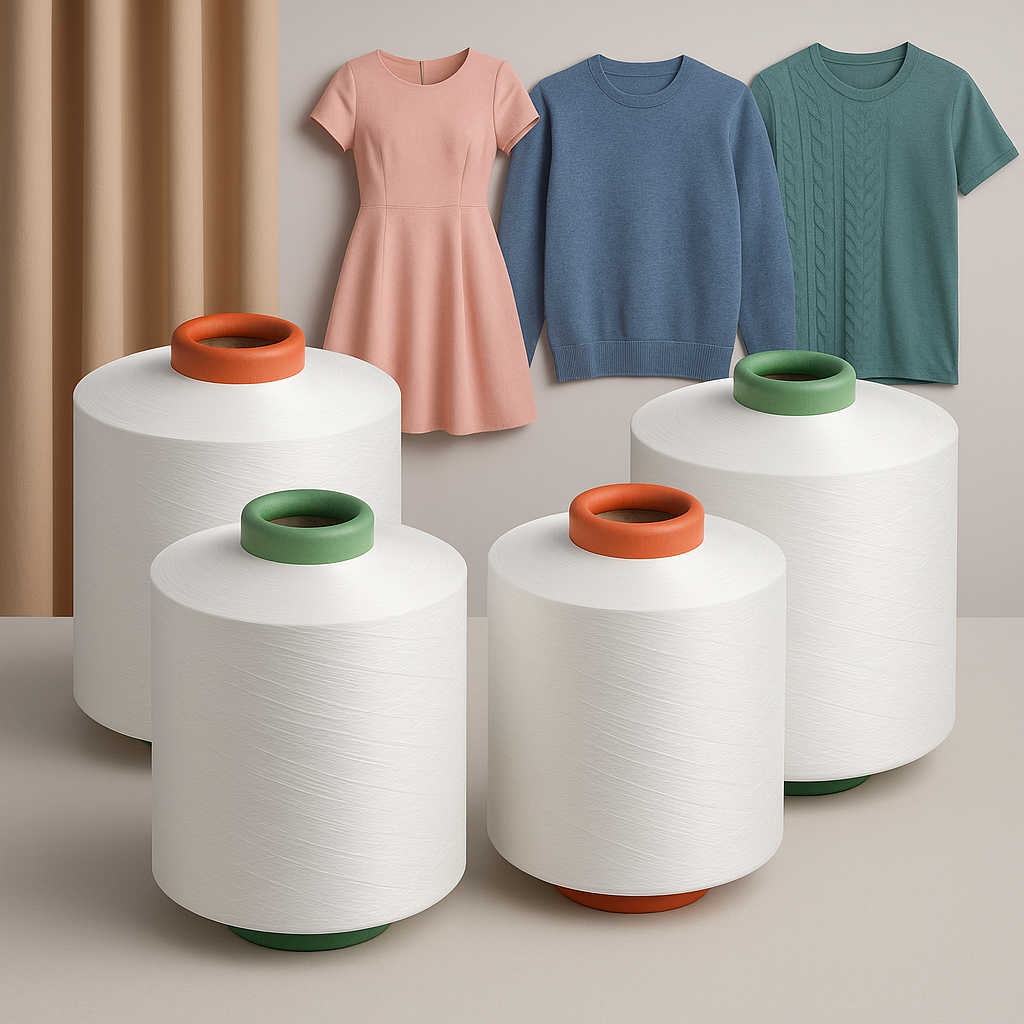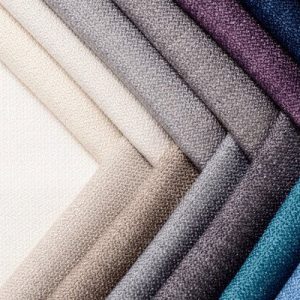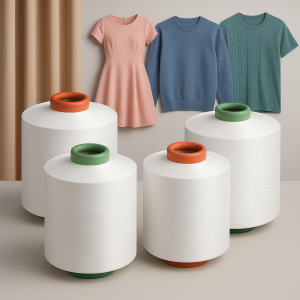Description
Polyester POY 500/96/SD Yarn
Superior Performance for DTY and FDY Production Lines
The Polyester POY 500/96/SD yarn, manufactured by Shahid Tondgouyan Petrochemical Company (STPC) using Oerlikon Barmag technology from Germany, is a professional choice for producing high-quality DTY and FDY yarns. This pre-oriented yarn, with its precisely engineered structure and stable mechanical properties, is widely used in the textile industry for producing knitted, circular, and technical fabrics.
🔧 Product Specifications:
| Feature | Value | Unit | Test Method |
|---|---|---|---|
| Denier | 500 ±2% | dtex | NVT001 |
| Stretch Percentage | 140 ±5% | % | NVT002 |
| Stretch Variation | ≤ 5.0 | % | NVT002 |
| Tensile Strength (Tenacity) | ≥ 1.95 | CN/dtex | NVT002 |
| Uniformity (Uster) | ≤ 1.50 | U% | NVT003 |
| Tension Force | 60 – 80 | – | – |
| Oil Content (OPU) | 0.45 – 0.55 ±0.05 | wt% | NVT017 |
| Boiling Water Shrinkage (BWS) | 65 ±5 | % | NVT004 |
| Nodules Count | ≥ 5 | per meter | NVT008 |
| Bobbin Weight | 12 – 14 | kg | – |
| Surface Control | No issues | – | Visual Inspection |
🎯 Applications:
Polyester POY 500/96/SD is used as a base yarn for the production of:
- DTY (Draw Textured Yarn)
- FDY (Fully Drawn Yarn)
This yarn delivers exceptional performance in producing fabrics such as knitted textiles, sportswear, comfortable clothing, and industrial applications like technical textiles.
Comparison with Other Yarns
Yes, comparing Polyester POY 500/96/SD with other yarns, such as Polyester POY 250/48/SD, can provide valuable insights into choosing the right yarn for specific applications. Below are the key differences between these two polyester grades:
1. Denier and Filament Count:
- Polyester POY 500/96/SD: This yarn has a denier of 500, which indicates a thicker yarn compared to the lower denier POY grade. The filament count is 96, making it suitable for producing thicker yarns.
- Polyester POY 250/48/SD: This yarn has a denier of 250, which means it is thinner. The filament count here is 48, designed for producing finer and more delicate yarns.
2. Tensile Strength and Stretch:
- Polyester POY 500/96/SD: Due to the higher denier and greater filament count, this yarn typically has higher tensile strength. It is ideal for applications that require more resistance, such as technical and industrial fabrics.
- Polyester POY 250/48/SD: This yarn, with a lower denier, has lower tensile strength compared to the 500/96 yarn, but its thinner profile makes it more suitable for producing finer and lighter fabrics.
3. Applications:
- Polyester POY 500/96/SD: Yarns with higher denier are typically used for heavier and more durable fabrics, such as technical textiles, sportswear, industrial clothing, and fabrics resistant to stretch and abrasion. Due to its strength and stretch, it is perfect for fabrics requiring long-lasting performance.
- Polyester POY 250/48/SD: This yarn is typically used for producing lighter, softer, and finer fabrics. It can be used in knitting fabrics, everyday clothing, lightweight garments, and delicate fabrics like women’s wear or decorative textiles.
4. Tensile Strength and Uniformity:
- Polyester POY 500/96/SD: Due to the higher filament count and thicker yarn, this yarn generally exhibits higher uniformity and greater resistance to tensile forces and breakage. It is ideal for products that need high physical durability and resistance to wear.
- Polyester POY 250/48/SD: This yarn may have slightly lower uniformity compared to higher denier yarns but still performs well in fabrics where finesse and delicacy are required.
5. Softness and Comfort:
- Polyester POY 500/96/SD: Yarns with higher denier typically feel firmer, so they may be less soft and comfortable than finer yarns. This is not an issue for industrial and abrasion-resistant fabrics.
- Polyester POY 250/48/SD: Yarns with lower denier are generally softer and more comfortable, making them ideal for everyday wear, light clothing, and sensitive fabrics.
6. Weight and Packaging:
- Polyester POY 500/96/SD: Due to its thicker profile, the bobbin weight will be heavier (12–14 kg). It is typically packaged for bulk transportation and industrial storage.
- Polyester POY 250/48/SD: With its lower denier and filament count, the bobbin weight will be lighter. This yarn is also packaged similarly but for lighter applications.
7. Color Fastness and Environmental Resistance:
Both grades of polyester yarn typically show high resistance to UV rays, moisture, abrasion, and environmental conditions. However, higher denier yarns like 500/96 may offer better wear resistance due to their thicker structure.
Summary:
- Polyester POY 500/96/SD is ideal for producing thicker, stronger yarns used in technical textiles and industrial applications like abrasion-resistant and stretch-resistant fabrics.
- Polyester POY 250/48/SD is better suited for producing lighter, softer fabrics and is more appropriate for everyday clothing, knitted fabrics, and applications where comfort and finesse are essential.
Ultimately, the choice between these two yarn grades depends on the specific production needs and final product requirements.




Reviews
There are no reviews yet.